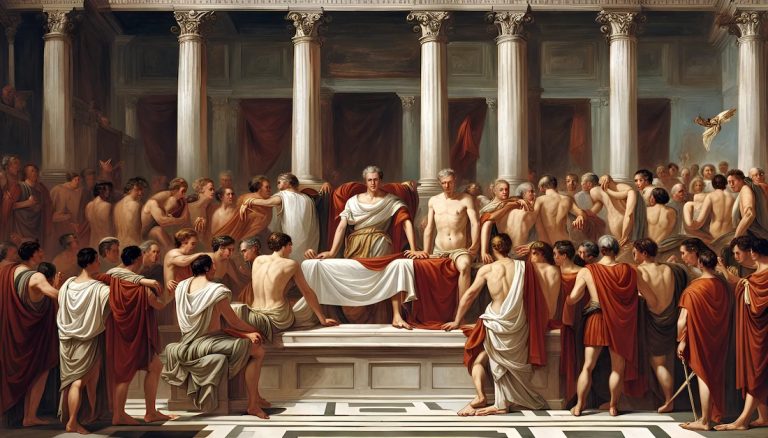
Caligula’s court is remembered as a cautionary tale of absolute power gone awry
New York, N.Y. — Caligula’s reign as Roman emperor from 37 to 41 CE stands as one of the most notorious periods in the history of the Roman Empire. Officially known as Gaius Caesar Augustus Germanicus, Caligula’s court quickly devolved into a spectacle of cruelty, corruption, and chaos, leaving a legacy that has haunted the annals of imperial rule.
The Rise of Caligula: Hope Turns to Horror
When Caligula first ascended to power, Rome was eager for change. The oppressive final years of Tiberius had left the city weary, and Caligula’s early acts—abolishing treason trials, recalling exiles, and distributing generous gifts—were met with widespread relief and celebration. He initiated ambitious building projects, including aqueducts and public works, and improved the city’s infrastructure. For a brief moment, it seemed Rome had found a benevolent leader.
However, this optimism was short-lived. Within months, Caligula suffered a severe illness that, according to ancient sources, fundamentally altered his personality. Whether the result of epilepsy, a nervous breakdown, or another affliction, his recovery marked the beginning of a reign defined by paranoia, extravagance, and violence.
The Descent into Madness and Tyranny
After his illness, Caligula’s behavior became increasingly erratic and cruel. He revived the dreaded treason trials, executing senators and confiscating their estates under fabricated charges. His cruelty extended to all levels of society, and he was known to levy harsh taxes on everything from lawsuits to weddings, plunging Rome into a financial crisis.
Caligula’s court became infamous for its atmosphere of fear. He humiliated senators, forced them to grovel and kiss his feet, and seduced their wives at public dinners. His eccentricities turned dangerous—he dressed as a god, demanded worship, and even ordered his statue to be erected in the Temple at Jerusalem, nearly provoking a revolt in the province.
Scandal, Excess, and Public Outrage
Caligula’s spending was lavish and reckless. He built extravagant palaces and floating pleasure barges, and his personal indulgences quickly depleted the treasury. When funds ran short, he resorted to blackmail and the confiscation of property from Rome’s wealthiest families. His bizarre public spectacles, such as constructing a pontoon bridge across the Bay of Baiae to defy a prophecy, further alienated the elite and the common people alike.
His military campaigns were equally farcical. In one infamous episode, he led his army to the shores of Gaul, only to order them to collect seashells—declaring them the spoils of a conquered ocean. Such actions eroded any remaining respect for his leadership.
Collapse of Order and Assassination
By 41 CE, Caligula’s reign had become unbearable for Rome’s elite. Plots against his life multiplied as his paranoia and violence spiraled. The final blow came in a conspiracy led by his own Praetorian Guard, who assassinated him in the palace. To prevent reprisals, his wife and daughter were also killed. Caligula’s death was met with relief rather than mourning, and his uncle Claudius was hastily installed as emperor.
Lasting Legacy
Caligula’s court is remembered as a cautionary tale of absolute power gone awry. His brief reign left Rome destabilized, its institutions weakened, and its people traumatized by the excesses and brutality of his rule. The chaos and corruption of Caligula’s court serve as a stark reminder of the dangers posed by unchecked authority and the fragility of order under a tyrant.
Caligula: The Court of Gaius Caesar Augustus Germanicus (April 16, 2025)
#Caligula #AncientRome #RomanHistory #ImperialRome #Tyranny #HistoricalScandal #RomanEmperors #HistoryUncovered #DarkHistory
News Tags
Caligula, Roman Empire, Ancient Rome, Roman Emperors, Julio-Claudian Dynasty, Roman Senate, Imperial Court, Assassination, Roman History, Tyranny